Recombinant Human CARHSP1 protein(Met1-Ser147), His-tagged
| Cat.No. : | CARHSP1-454H |
| Product Overview : | Recombinant Human CARHSP1(Q9Y2V2 ) (Met1-Ser147) was expressed in E. coli with a polyhistidine tag at the N-terminus. |
- Specification
- Gene Information
- Related Products
- Case Study
- Application
- Download
| Species : | Human |
| Source : | E.coli |
| Tag : | His |
| Protein Length : | Met1-Ser147 |
| Form : | Lyophilized from sterile 50mM Tirs, 10% Glycerol, 200mM NaCl, pH 8.0. Normally 5 % - 8 % trehalose, mannitol and 0.01% Tween80 are added as protectants before lyophilization. |
| Molecular Mass : | The recombinant human CARHSP1 consists of 162 amino acids and predicts a molecular mass of 17.7 KDa. It migrates as an approximately 21 KDa band in SDS-PAGE under reducing conditions. |
| Purity : | > 85 % as determined by SDS-PAGE |
| Storage : | Samples are stable for up to twelve months from date of receipt at -20°C to -80°C. Store it under sterile conditions at -20°C to -80°C. It is recommended that the protein be aliquoted for optimal storage. Avoid repeated freeze-thaw cycles. |
| Reconstitution : | It is recommended that sterile water be added to the vial to prepare a stock solution of 0.2 ug/ul. Centrifuge the vial at 4°C before opening to recover the entire contents. |
| Gene Name | CARHSP1 calcium regulated heat stable protein 1, 24kDa [ Homo sapiens ] |
| Official Symbol | CARHSP1 |
| Synonyms | CARHSP1; calcium regulated heat stable protein 1, 24kDa; calcium regulated heat stable protein 1 (24kD); calcium-regulated heat stable protein 1; CRHSP 24; CSDC1; calcium-regulated heat-stable protein (24kD); calcium-regulated heat-stable protein of 24 kDa; CRHSP-24; MGC111446; |
| Gene ID | 23589 |
| mRNA Refseq | NM_001042476 |
| Protein Refseq | NP_001035941 |
| UniProt ID | Q9Y2V2 |
| ◆ Recombinant Proteins | ||
| CARHSP1-10842Z | Recombinant Zebrafish CARHSP1 | +Inquiry |
| CARHSP1-0401H | Recombinant Human CARHSP1 Protein, GST-Tagged | +Inquiry |
| CARHSP1-26088TH | Recombinant Human CARHSP1, His-tagged | +Inquiry |
| CARHSP1-2890HF | Recombinant Full Length Human CARHSP1 Protein, GST-tagged | +Inquiry |
| CARHSP1-628R | Recombinant Rhesus monkey CARHSP1 Protein, His-tagged | +Inquiry |
| ◆ Cell & Tissue Lysates | ||
| CARHSP1-7847HCL | Recombinant Human CARHSP1 293 Cell Lysate | +Inquiry |
Case 1: Pfeiffer JR, et al. Mol Cell Biol. 2011
Researchers explored TNF-α regulation, identifying CARHSP1 through an RNA capture assay. Knocking down CARHSP1 reduced TNF-α production and mRNA stability, while introducing it increased 3'UTR luciferase expression. Blocking Akt or calcineurin, but not PP2A, affected CARHSP1 function. CARHSP1 is found in processing bodies and exosomes and is critical for stabilizing TNF-α mRNA.
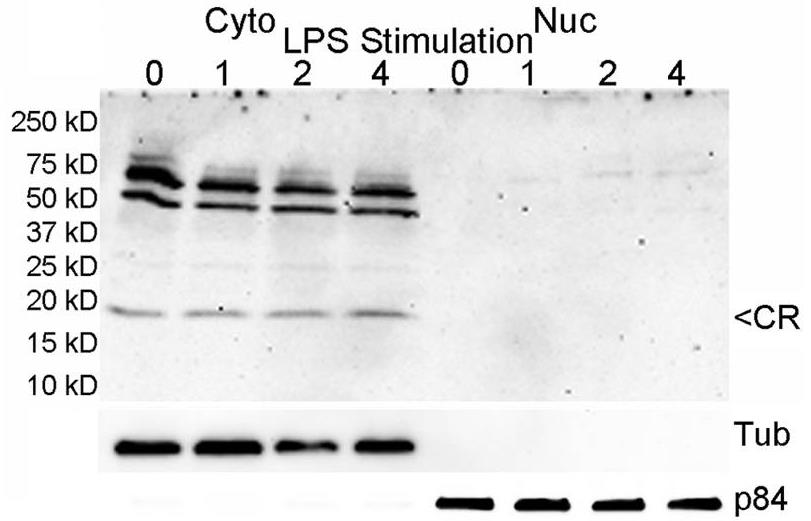
Fig1. Time course of CARHSP1 expression in resting and LPS-stimulated RAW264.7 cells.
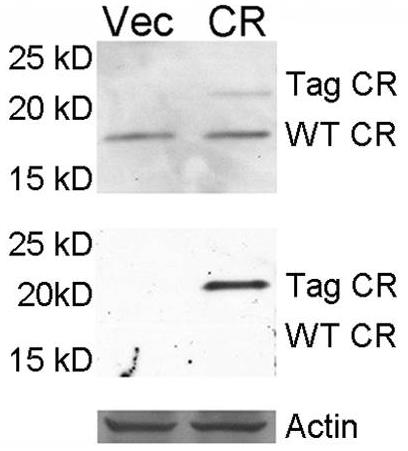
Fig2. Expression of 100 ng of recombinant CARHSP1 in RAW264.7 cells.
Case 2: Li X, et al. Sci Rep. 2016
Researchers are studying miR-155's role in atherosclerosis, noting its increased presence in foam cells and patient samples. It targets CARHSP1, affecting TNF-α mRNA stability, and is elevated by NF-κB due to TNF-α. miR-155 helps curb inflammation via a feedback loop, offering protection in atherosclerosis through the miR-155-CARHSP1-TNF-α pathway.
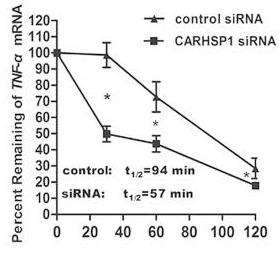
Fig1. TNF-αmRNA half-life (t1/2) in cells treated with actinomycin D (ActD) post transfection with CARHSP1 siRNA or the control.
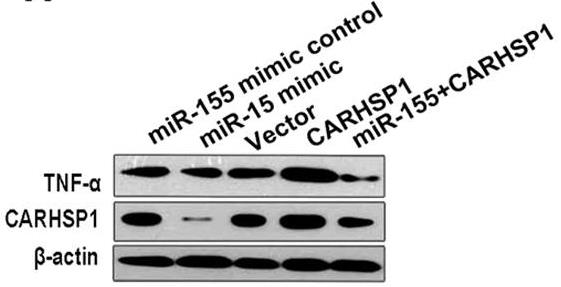
Fig2. Western blot analysis and Oil Red O staining were employed to examine the protein level of CARHSP1 and TNF-α.
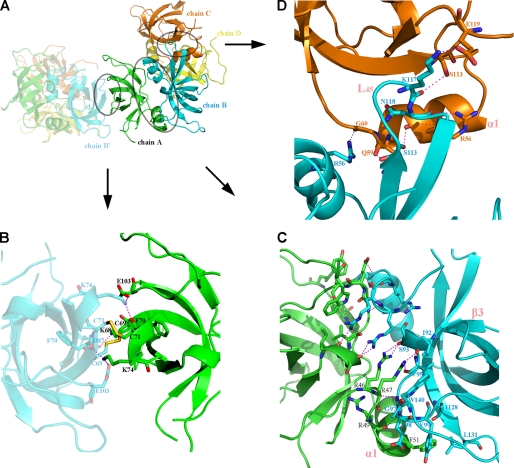
Fig1. Molecular structure of CRHSP-24 and its asymmetry. (Hai Hou, 2011)
Not For Human Consumption!
Inquiry
- Reviews (0)
- Q&As (0)
Ask a Question for All CARHSP1 Products
Required fields are marked with *
My Review for All CARHSP1 Products
Required fields are marked with *



